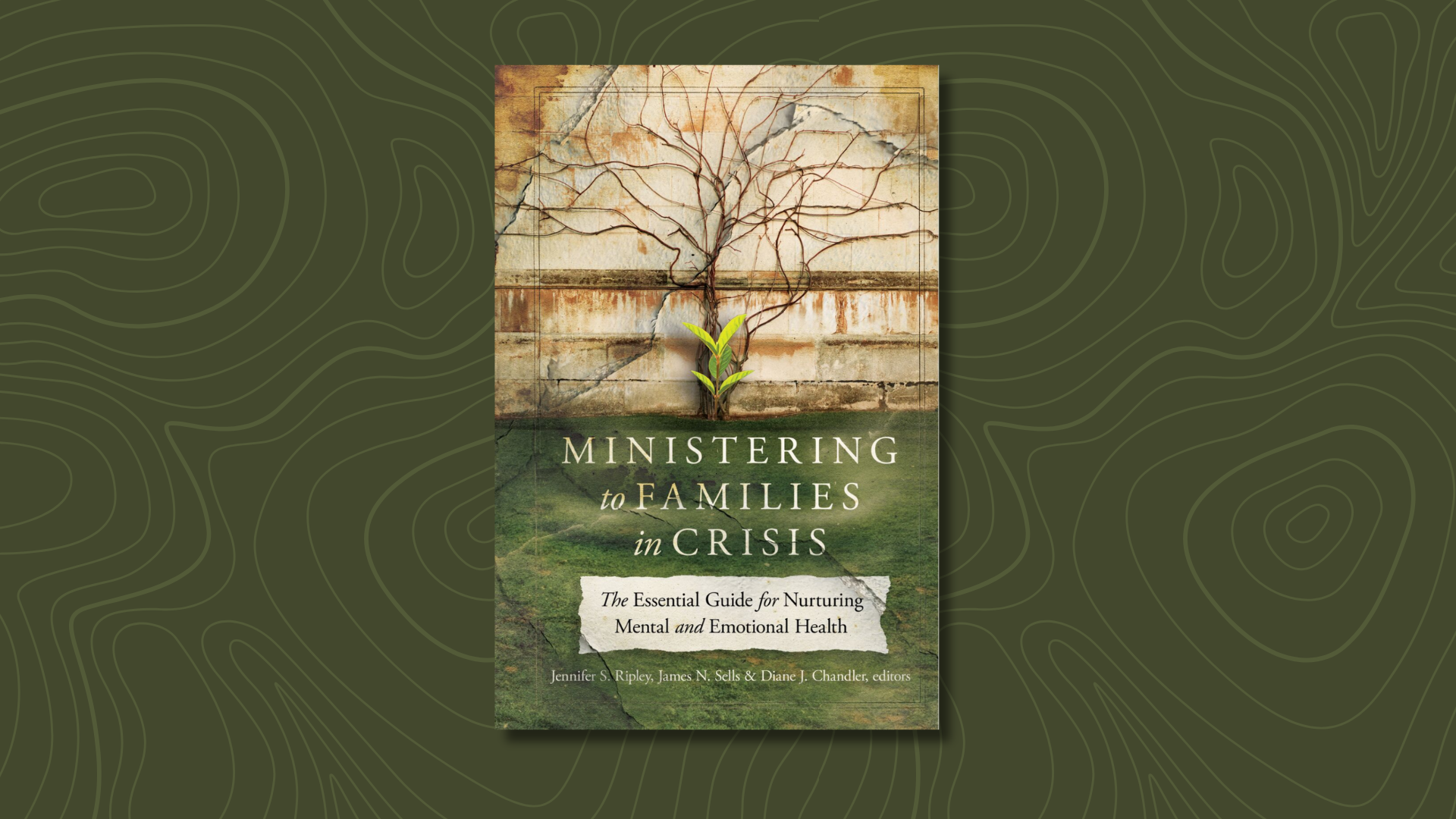Ministering to Families in Crisis: The Essential Guide for Nurturing Mental and Emotional Health
Jennifer S. Ripley, James N. Sells, and Diane J. Chandler, eds.
InterVarsity Press Academic, 368 pages
My path to pastoral ministry was not linear. Even in seminary, I skipped the “pastoral care” classes because I never envisioned myself in that role. Now after fifteen years in various staff positions, I can see how God was guiding me in my call even when it wasn’t clear to me. Still, when a parent calls asking for counsel in dealing with trauma or congregants meet with me to address a family member with addiction, I do wonder whether I missed training that could help those experiencing crisis. Even if I had taken those classes, I wonder, would that training still be relevant now after the dynamic changes and shifts our culture and society have experienced in recent years?
Regardless of the path you took into ministry or the position you currently hold, whether it be paid staff or lay leadership when people in crisis reach out to us, we are entrusted with a significant opportunity to offer care and counsel. Ministering to Families in Crisis addresses seventeen topics, including the impact of disability on families, divorce and working with blended families, LGBTQ+ issues in marriage, and racial trauma, among others. Chapters are written by experts in specific fields and include helpful terminology, frameworks for understanding the topic, and footnotes for further reading and research.
This resource works both as a reference guide and as a general resource for understanding your role in offering pastoral care, especially as it intersects with and defers to mental health professionals. Each chapter stands well on its own to help lay a foundation for understanding and to provide a framework for responding to those experiencing a specific crisis or issue. Overall, I was impressed by the objective view and evenhandedness of each author, especially in such charged topics as LGBTQ+ conversations.
Some chapters, such as “Trauma in Families,” leaned more technical in their approach, offering specific terminology and definitions. I wanted to see more nuance in the ideas offered in the chapter “Families Affected by Disability,” which seemed to oversimplify the scope and needed resources to create change and improve accessibility. It’s clear that reading one chapter on a given topic doesn’t make you an expert, but each chapter does a good job to help you start asking the right questions. I do think the book would be strengthened by offering a brief introduction of the authors and their credentials at the start of each chapter instead of all together in the first chapter. I also would have liked to see a summary at the end of each chapter with key ideas to remember or questions to ask so the content could be more quickly referenced as needed.
Wherever you are in your ministry path, Ministering to Families in Crisis has up-to-date research, information, and resources to strengthen your pastoral care to equip you to address whatever crisis comes your way. Having read it, I feel better equipped as a pastor and will continue to reference it moving forward.
Ministering to Families in Crisis is available now at covbooks.com.














